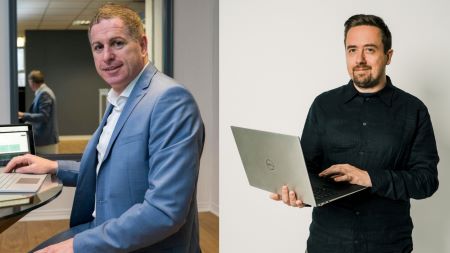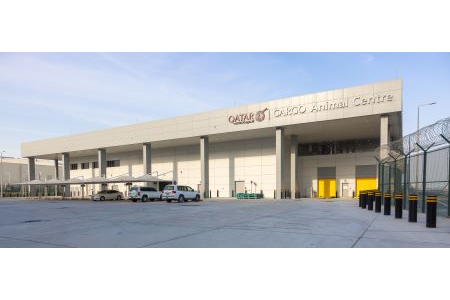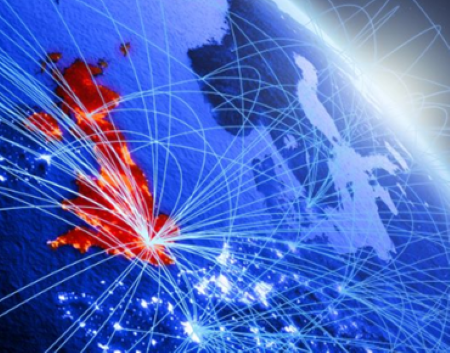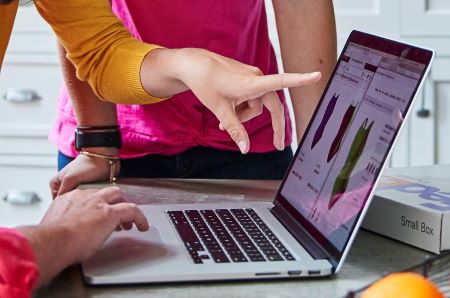Showhome Editor Joseph Clarke discusses digitalisation and green shipping with Samantha Brocklehurst, Customer Experience Manager, Maersk UK & IRL
Following the exciting inauguration of Laura Maersk, marking a huge milestone for green shipping, ITM had the pleasure of catching up with Samantha Brocklehurst, Customer Experience Manager, Maersk UK & IRL. In this exclusive interview, I spoke with Samantha to find out about progressions in the industry, covering artificial intelligence, digitalisation and green shipping methods.
What have been the standout moments for the shipping industry since you began your career 15 years ago?
I think how quickly we’ve managed to accelerate and actually progress within the sustainability field – This is a real standout moment for me! I think we’ve been a bit slow as an industry to adopt digitalisation, to adopt the power of things like AI, but I’d like to say in the last couple of years we’re getting there and I’m now starting to see really good things come out, which I think will really have a massive impact for customers, for people within the supply chain. So, I’m very excited to see what that brings.
How important do you think digitalisation has become over more recent years?
I think if we’re really, really humble as an industry, we haven’t embraced digitalisation in the same way that others have. If you look at finance, the banking industry for example, and you look at the acceptance of digital standards, those have been in place within that industry for 10, 15, 20, maybe even longer. In shipping and logistics were not there yet. And that’s not to say there haven’t been attempts to get there, but I think now more so than ever, and definitely post pandemic and post supply chains and logistics becoming more and more part of the wider vocabulary, I think we really are seeing demand from customers intensifying, asking about what we are doing as one of my logistics providers, or what we are doing in the realm of digitalisation. But also, from a practical point of view, from how we run assets and how we run supply chains, we’re at that crunch point where, as an industry, we really need to take advantage of what digitalisation can bring. And that’s definitely started to come faster and faster over the past couple of years.
Why do you think that that hasn’t happened before as it has happened in other countries?
I think one of the challenges is the trust in the network – I think a lot of what we do is considered protected, to be very commercially sensitive, and I think one of the big challenges we’ve got is that we’ve still yet to overcome, as an industry, that trust element where we all need to share data; we all need to agree on standards, we all need to agree on what it looks like to make a booking, and what it looks like to have an electronic bill of lading. But there’s been some historical challenges there with getting everybody around the table. I think again, we’re starting to come to the other side of that. So, if you look at the digital Container shipping Association, there are nine ocean carrier members, of which Maersk is one, and they have a number of ambitions, but one of which is a hundred electronic bills of lading by 2030. Another is to set those standards to put aside commercial sensitivity or commercial concerns and actually sit down and agree those standards, which will accelerate the digitalisation of shipping and logistics.
What have been the main developments in Artificial Intelligence that you have witnessed?
That’s a great question. It’s an area that I’m personally very, very interested in. I can talk about it from a Maersk point of view and what we’re doing in terms of artificial intelligence. It’s not enough to just be able to give visibility, to be able to just give data, to be able to say your piece of cargo; be it on airplane, train, sea, wherever. It’s not enough to say that’s where it is. What we need to be asking is what does that mean? What’s the insight? What’s the action that needs to be taken or can be taken to enhance the supply chain? And that is definitely where AI comes in. So, from a Maersk point of view, that’s the realm we are looking at it from. So, how we can use it to support those customer insights, to support our colleagues in different parts of the business to do what they need to do. And again, certainly over the past year or so, it’s a topic that customers ask me about and it’s a topic that suppliers ask me about; and it’s a subject that we have spent a lot of time talking about internally. I think there is definitely more to come in this realm.
What can you tell us about how shipping has progressed in the areas of sustainability and energy-efficiency?
I think I’ll give you a number – Three years ago, there were five vessels globally capable of dual fuels, so capable of running on both a traditional fossil fuel and something greener. Now, as we look at the order books across the industry, there are 200 at least on the order books, and 139 of those are container vessels – And that’s in the last three years! So, I think this is something which has been on the agenda with customers certainly for a number of years, but very anecdotally, I can tell you that a lot of the customer engagement I do with CEOs, this is now very firmly on the agenda. Customers have got a sustainability promise to their end customers, be it working with retailers or with automotive companies – They’re all now moving into the position where they have to make a commitment on their sustainability pledges. And as shipping and logistics are part of those supply chains, they also have to come to the table. It’s really, really gathering momentum. Within the last month at Maersk, we have had the delivery of the first green methanol vessel – Laura Maersk. She’s the first of 25 and she is tiny in comparison to others – She’s only 2,100 teu. At Maersk, we have a number on order between now and 2027, which will really help us accelerate those sustainability gains and promises for our customers.
Finally, what are your other predictions or observations for the future of the shipping industry?
I think sustainability and digitalisation are definitely the name of the game at the moment. I think what we will continue to see, and actually what I hope we do continue to see, is shipping and logistics being part of our active vocabulary. I think previously we’ve been quite a hidden part of the world and we’ve been like the wizard behind the curtain. And I think over the past couple of years, as the networks have tightened, as we faced challenges as an industry, be it with availability of labour, be it with congestion in ports, be it with availability of tracking, or with availability of planes, that has had a big impact on the end consumer. People have started being curious about what we do and asking questions, and I think we shouldn’t shy away from that. Yes, they can be challenging conversations when people are looking in at us, but actually I think it’s an opportunity. It’s an opportunity to challenge ourselves, to challenge our way of thinking, to challenge the ways that we do things. And quite frankly, I’m not precious. So, I think the more “good brains”, the more “good eyes”, and the more “good questions” we can get into what we do, will only help shape the future of this industry over the next 10, 20, 30, years. I hope that is what we continue to see evolve, and I hope that is what we can continue to leverage for the good of the industry and the good of customers.
Read more news and exclusive features in our latest issue here.
Never miss a story… Follow us on:
International Trade Magazine
@itm_magazine
@intrademagazine
Media Contact
Joseph Clarke
Editor, International Trade Magazine
Tel: +44 (0) 1622 823 920
Email: editor@intrademagazine.com








